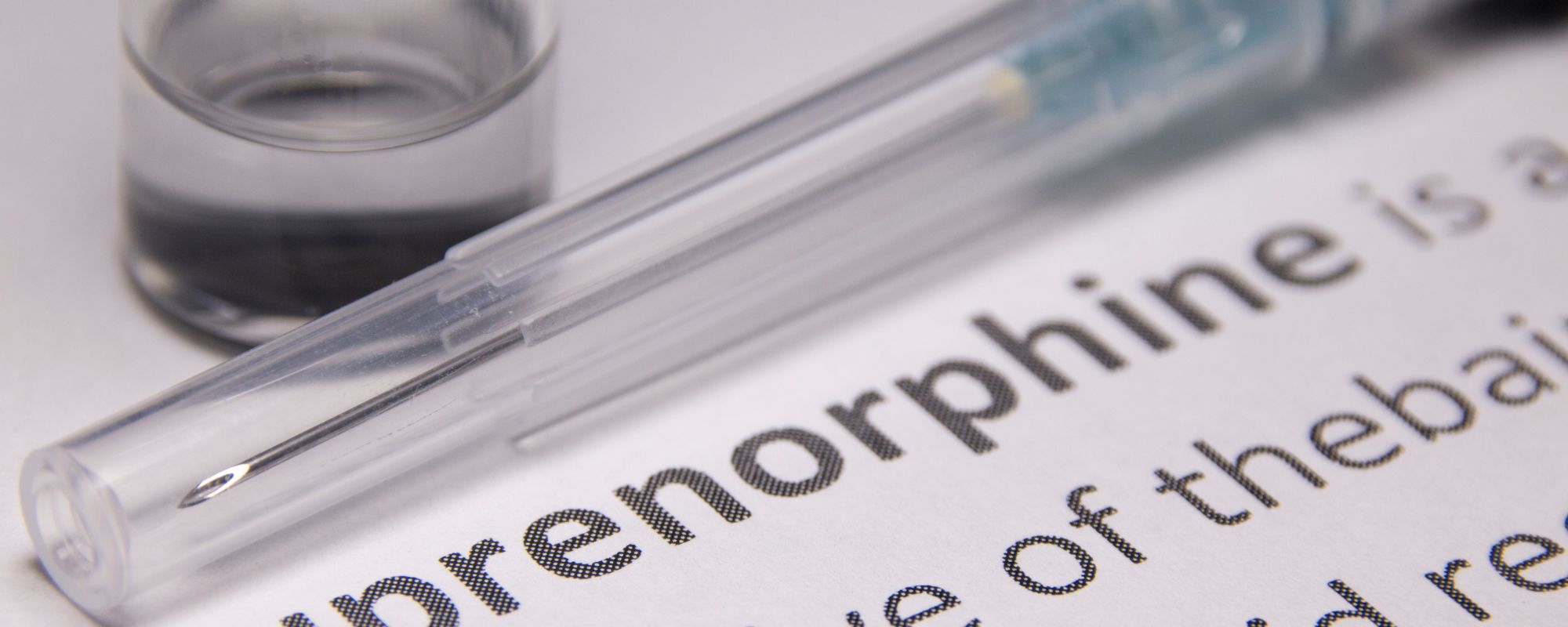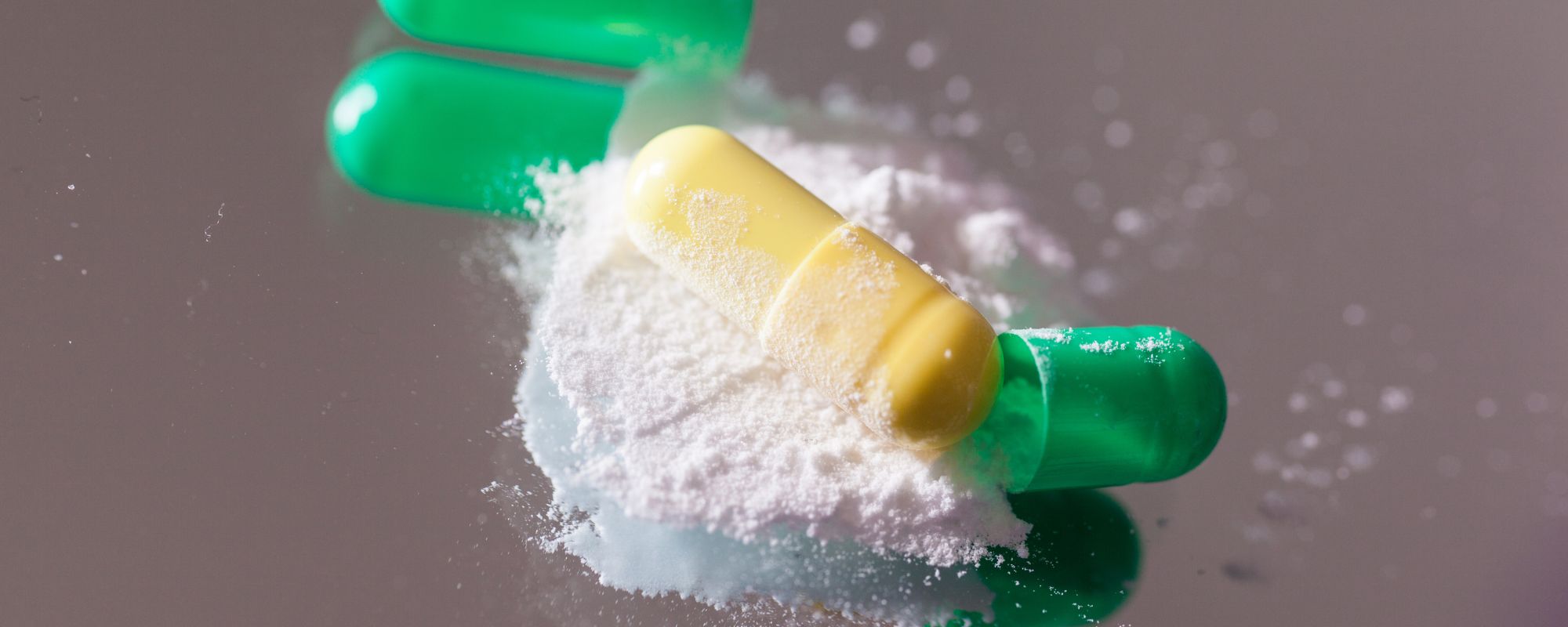“If you do not change direction, you might end up where you are heading.”
Profound words from the Chinese philosopher Lao Tzu, they may resonate and ring true if you’ve been battling drug addiction — that continuing down the same path only bores a deeper spiral downward unless you forge a new direction.
That change may mean deciding to enter rehab. A decision that takes bravery, accountability and responsibility, when you recognize the need for treatment, there’s one important choice that can be difficult to make: what type of program will work best for you?
Falling between inpatient and outpatient treatment, an IOP program aims to strike a balance between the two. What can you expect from this more rigorous approach to outpatient rehab? Read on to see what IOP involves and how it stacks up to other outpatient addiction treatment offerings.
What Is an Intensive Outpatient Program for Addiction?
An Intensive Outpatient Program, or IOP program, is a type of structured addiction treatment that allows you to receive care for alcohol or drug use without having to stay overnight at a facility (as you would through inpatient care).
IOPs are ideal when your needs fall somewhere between the rigorousness of an inpatient treatment and the flexibility of an outpatient program. On the one hand, you might not have the time away from work, school, family, and daily life to commit to living onsite at a rehab facility. You might also be entering rehab before an addiction has made life so difficult that you need round-the-clock care.
On the other hand, although your substance abuse hasn’t impeded your day-to-day functioning, you might be very prone to relapsing or lack a positive support network, creating a clear need for a more substantive approach.
An IOP program strives to bridge this gap by incorporating elements of both inpatient and outpatient. If you know you need more support than what a weekly therapy program offers but aren’t able to pause your life for inpatient rehab, an IOP program might be a good fit.
“Intensive outpatient programs (IOPs) are a treatment model that may address limitations of OP treatment by increasing treatment initiation and retention and addressing perceived barriers,” notes a 2023 study in Cognitive and Behavioral Practice.
What makes an IOP program “intensive” is the higher level of structure and time commitment. You’ll typically attend therapy sessions several days per week, for several hours each day — more than you would in outpatient. A mix of group counseling and individual therapy, your work might focus on relapse prevention, building life skills, and understanding the underlying factors that contribute to addiction — each one important to laying the groundwork for recovery.
“Substance abuse intensive outpatient programs (IOPs) are ambulatory services for individuals with substance use disorders who do not meet diagnostic criteria for residential or inpatient substance abuse treatment,” notes a 2014 study, “or for those who are discharged from 24-hour care in an inpatient treatment facility and continue to need more support than the weekly or bi-weekly sessions provided in traditional outpatient care.”
Looking for quality treatment for substance abuse and mental health that’s also affordable? Aliya Health Group's treatment facilities accept most major insurance providers. Get a free insurance benefits check now!
Check Your CoverageIOP Program vs Inpatient Treatment for Addiction
The most important element that an IOP shares with inpatient treatment is that both are built with the goal of helping you beat addiction and get sober. But the experience can be different in some ways depending on which treatment path you take:
Aspect | IOP program | Inpatient treatment |
Where you live | You head home each night and return for scheduled sessions. | You remain onsite around the clock, with every hour structured by treatment, meals, and recreation. |
Treatment intensity | IOP sessions last for several hours a day for multiple days a week. | Inpatient includes a combination of individual and group therapy — five hours a day, seven days a week. |
Keeping your routine | An IOP allows you to maintain work, school or family responsibilities while attending therapy. | Inpatient treatment requires you to press pause on all your outside obligations while you devote every aspect of your day to treatment. |
Cost considerations | An IOP program is generally lower and more affordable, since this plan includes no room and board. | There may be a higher overall cost due to housing, meals and 24/7 clinical care. |
Best fit if … | You have a safe home environment and a stable support network with a low risk of addiction relapse triggers. | You need constant supervision, face severe withdrawal dangers or you lack a supportive home setting or personal life. |
What Are the Other Levels of Care in Outpatient Care?
Whereas inpatient care remains on a standard track requiring you to live onsite for the duration of therapy and treatment, there are a few levels of outpatient drug rehab that exist on a spectrum. The more intense IOP program serves as a middle ground between the two other types of outpatient alcohol rehab:
Partial Hospitalization Program (PHP)
PHP stands for Partial Hospitalization Program. What’s the difference between IOP vs PHP? Think of it as the most intensive form of outpatient addiction treatment with a structure similar to an inpatient stay. PHP calls you to commit more time to treatment — here, you’ll attend therapy and treatment sessions at a rehab center for several hours each day, five to seven days a week, but you’ll be enabled to return home at the end of each day.
PHPs are well-suited for people transitioning from living full-time onsite for inpatient rehab, or if you don’t need 24-hour care, yet you may suffer from an addiction where additional medical monitoring and oversight, more rigorous than an IOP program, can benefit you.
Outpatient Rehab Programs
At the opposite end of the spectrum, standard outpatient drug rehab or outpatient alcohol rehab represents the least intensive form of rehab, giving you the most independence in recovery. Many people in recovery find themselves in outpatient, or OP, after completing an inpatient, PHP, or IOP program. They’ve done much of the major therapeutic work and self-discovery to unpack the deeper roots of their addiction, but OP continues this trajectory to set you on a sober path.
Your commitment to an OP treatment plan involves attending individual or group therapy for several weeks or months, but for less time each day and week, after which you can return home in the evenings. OP plans also offer the most flexibility to fit treatment into your schedule around school, work and family responsibilities.
Get confidential help from our addiction and mental health treatment facilities located across the United States. Call to join one of our quality programs today!
Speak With Our Admissions TeamWhat to Expect in an IOP Program for Addiction Treatment
Signing up for an IOP program means having a clear-cut, thoughtfully planned treatment structure that covers all aspects and facets of mental health and addiction recovery:
Individualized Treatment Plans
Outpatient addiction treatment remains effective because it relies on clinically proven methods that have been shown to help conquer substance use disorders. Studies show that outpatient care, including an IOP program, leads to better detoxification and abstinence rates, particularly in alcohol use disorder. However, no two recovery journeys are quite the same, and the best outpatient rehab needs to acknowledge and reflect this by developing a plan that’s tailored to your own needs, your addiction history, your goals and any other conditions that may coincide with addiction, like a co-occurring mental health disorder that might necessitate what’s known as a dual diagnosis.
Exceptional Care and Guidance
“Real recovery begins by meeting you where you are” is one of Aliya’s promises — a pledge to go above and beyond in delivering compassionate care with your recovery, our number one goal. And that starts with the quality and level of care you can expect from our outpatient rehab centers. In an IOP program, this means you’ll find yourself under the care of licensed therapists who specialize in addiction treatment; case managers to map out and coordinate your plan; and doctors, nurses and support staff on hand during detox or to administer any necessary medication. Last but not least, the peers you’ll meet in rehab are here to guide each other through the recovery process.
Evidence-Based Psychotherapy
Psychotherapy is a type of talk therapy engaging you in conversation with a therapist or counselor to help identify and pinpoint unhealthy and unhelpful thoughts and emotions that may be fueling your addictive behaviors. And when therapy is evidence-based, it means it’s been proven clinically effective in promoting and reinforcing new positive mental patterns, feelings, and behaviors in place of previous ones.
In an IOP program, this takes shape through methods like Cognitive Behavioral Therapy (CBT) to help reframe thought narratives from negative to positive; Dialectical Behavioral Therapy (DBT) for developing better emotional regulation when impulsive emotions play a role in drinking or using drugs; or Acceptance and Commitment Therapy (ACT) enabling you to take autonomy and responsibility in your recovery without self-shame or blame.
Holistic Treatment
Our minds, bodies, and spirits make up the wholeness of ourselves, and holistic treatment aims to address this “whole” aspect of recovery. Holistic wellness recognizes that certain aspects of our health are interconnected — and that imbalances in one area can affect overall health and vitality. Activities like yoga, mindfulness meditation, expressive arts therapy, physical fitness, and more go beyond merely the symptoms of addiction and work to help you build mental, emotional, and physical resilience that substance use can dull. In your IOP program, you’ll ideally have a selection of holistic sessions alongside psychotherapy, one complementing the other.
Alumni and Aftercare Support
When you become an alumnus of outpatient addiction treatment, you’re effectively a graduate of your IOP program; you’ve taken the steps to start your recovery, done the work, and are equipped with the tools and mechanisms to live, thrive, and survive in a world without drugs or alcohol. But your relationship with Aliya shouldn’t end there. Alumni and aftercare support is like a type of recovery maintenance, continuing care where we can connect you with everything from transitional housing to 12-Step support groups in your area focused on the addiction you came into treatment for. You can even continue to attend individual and group therapy for regular check-ins. Like developing a healthy diet or new lifestyle, it reinforces the idea that recovery is a lifelong effort, not just a stint in rehab.
What Can Outpatient Rehab Help With?
Outpatient rehab centers — including Aliya’s 19 facilities — can treat a host of addictions. We look forward to taking you under our care and setting you on the path to wellness.
Alcohol Abuse
Nearly 29 million people in the U.S. suffer from alcohol use disorder, a condition characterized by excessive drinking that can affect your physical and mental health, your work, and your relationships. But the structured intensiveness of outpatient alcohol rehab works to guide you through detoxing from alcohol and managing withdrawal symptoms; identifying why you drink and what the underlying reasons are for your addiction; developing coping strategies when faced with triggers; and building a better, healthier sober lifestyle.
Drug Abuse
About 59.277 million people — 21.4% of people over 12 — used illegal drugs or improperly used prescription drugs within the last year, notes the National Center for Drug Abuse Statistics. From stimulants to depressants, chronic drug use can lead to dependence and addiction, illustrating a need for complete outpatient drug rehab. At Aliya’s centers, an IOP program can treat addictions to:
- Opioids such as prescription painkillers and heroin
- Stimulants such as cocaine, methamphetamine, and prescription drugs
- Cannabis
- Benzodiazepines
Mental Health Disorders
It’s estimated that more than one in five adults live with AMI or SMI — Any Mental Illness or Serious Mental Illness, respectively. Left untreated, mental health concerns can worsen and make recovery more challenging, leading to substance abuse that can exacerbate a mental health disorder and vice versa. Our IOP program is designed to incorporate the same level of treatment for some of the most treatable disorders, including:
Anxiety
One of the most common sets of conditions, did you know that anxiety disorders affect 40 million people each year? The comprehensiveness of an IOP program works to incorporate the same trusted therapy and training to help you manage anxiety symptoms, create healthier emotional responses, and navigate life without anxious tension, even when triggers are present.
Depression
Likewise, depression takes many forms, affecting 5% of the entire global population. It’s typified by feelings of hopelessness about the future, low self-worth, diminished energy, and a loss of interest in activities you once enjoyed. How does an IOP program help? Through talk therapy, individually and in group settings, you can finally start to uncover the who, what, when, where, and, most importantly, why about your depression and start to make tangible changes to your mood, your mental outlook, and well-being you never thought possible before.
Trauma
Unresolved trauma can weigh heavily on your psyche and your mood, impact your physical health and your relationships, and interfere with work and school. Even a single traumatic event can cause one to develop a trauma or panic disorder, or Post-Traumatic Stress Disorder (PTSD) — according to the National Center for PTSD, about six in every 100 people will struggle with PTSD at some point in their lives. If you’re coping with the effects of trauma, a trauma-informed IOP Program can offer specialized therapies like EMDR (Eye Movement Desensitization and Reprocessing) to help you process painful memories safely, reduce triggers, and reclaim a sense of control over your life.
What To Look for in an IOP Program for Addiction Treatment
Is outpatient drug rehab right for you? Remember to choose the best outpatient rehab based on your needs.
When you choose an IOP program, focus on factors that can make a real difference in your recovery experience. Look for programs with licensed and experienced staff who make use of proven, evidence-based therapies. You’ll also have access to support for relapse prevention through aftercare programs and other support networks and inquire about programs for specialty groups.
Lastly, make sure the program feels like a good fit for your needs and goals. Does it offer the care you need while allowing you to engage with your day-to-day life?
Know that by choosing an IOP program from Aliya, you place your trust in our expertise and guidance, our compassionate and comprehensive care. We care about getting you well, where our doors are open and our rehab centers are inclusive to all. And if you’ve decided to make that change, we’re here to answer your questions about our outpatient rehab centers, what they offer, affordable outpatient rehab treatment costs, and insurance coverage. Change your life with one phone call.
- https://www.sciencedirect.com/science/article/abs/pii/S1077722922001122
- https://pubmed.ncbi.nlm.nih.gov/24445620/
- https://www.ncbi.nlm.nih.gov/books/NBK507689/
- https://my.clevelandclinic.org/health/treatments/23445-psychotherapy
- https://www.niaaa.nih.gov/alcohols-effects-health/alcohol-topics/alcohol-facts-and-statistics/alcohol-use-disorder-aud-united-states-age-groups-and-demographic-characteristics
- https://www.nimh.nih.gov/health/statistics/mental-illness
- https://adaa.org/understanding-anxiety/facts-statistics
- https://www.who.int/news-room/fact-sheets/detail/depression
- https://www.ptsd.va.gov/understand/common/common_adults.asp
















